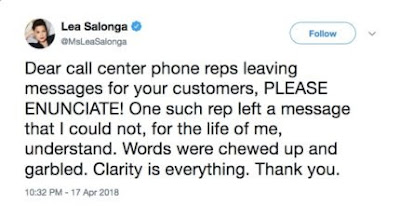Most call centers require at least 6 months on operations before newbies become tenured call center agents and enjoy benefits only tenured agents are entitled to. More importantly, only work experiences 6 months and up are worth adding on a resume as anything less really won’t count as work experience. That being said, unless call center newbies plan to be like grasshoppers jumping from one account to another, it is paramount that call center newbies learn survival tips to ensure they will last at least 6 months or hopefully much longer on the job and become tenured agents. This article presents some practical survival tips for call center newbies that can help them survive and maybe even thrive in the call center industry.
Survival Tips for Call Center Newbies
There are a myriad of pitfalls call center newbies should watch out for if they hope to survive their first six months. To simplify, we have grouped these pitfalls into 3 general categories which we will call 3M for Management, Metrics and Myself.
Management
Management laid out guidelines for every one to follow and expects 100% compliance. Infractions are all recorded on an agent’s profile and, depending on the severity of the infraction, management can impose penalties ranging from verbal warning for light offenses up to immediate endorsement to HR for severe offenses such as fraud and other ZTP (Zero Tolerance Policy) violations. As call center newbies, it would be best to avoid getting on management’s bad side. Be wary that during the first six months, newbies are being assessed whether they would be an asset or a liability to the account and management will not think twice letting go of liabilities. One reason we see call centers continuously hiring newbies is because they are also continuously firing bad eggs. Even light offenses can get newbies in a bad spot since verbal warnings can quickly escalate into written warnings all the way up to a final warning if a newbie’s bad behavior such as absenteeism, tardiness, non-adherence to schedules and other infractions are not corrected. And you guys already know what comes after the final warning so you don’t want to go there! Supervisors have a responsibility to weed out the bad eggs and ensure only newbies with the right work attitude make it past 6 months and become tenured agents. As a sup, I have very little patience for newbies who habitually go AWOL and I would not wait 6 months before letting them go. I go by the rule that says 3 strikes you’re out! I don’t have the energy to waste on newbies who don’t have the energy to come to work. Survival tip #1 for call center newbies: BEHAVE!Metrics
In practically all call centers metrics is king! Metrics or Key Performance Indicators (KPI) measure a call center agent’s performance as far as call efficiency and providing excellent customer experience is concerned. Meeting or exceeding metrics determines whether the site keeps the account or closes shop. This is why management expects every one, newbies and tenured alike, to do their share in hitting the site metrics every month. Call center newbies are usually given a month or two at most to “find their groove” being newbies and all but are expected to be more consistent in hitting their metrics by the third month onwards. Trainors, nesting coaches and sups have done all they could to ensure newbies will perform well on the production floor and continuously monitor their progress. Failing to meet metrics consecutively or failing to show marked improvement in meeting metrics despite all the support they’re getting can spell doom for call center newbies. As a sup, I would go all out supporting and coaching any newbie who shows potential for improvement and is willing to learn, even if doing so gets me into trouble with my managers. Pit stops can’t save bottom performing newbies because pit stops are usually reserved for tenured agents. Bottom line, call center newbies have to perform well within their first 6 months or management will have no choice but to let them go. Newbie survival tip #2: MEET YOUR METRICS!RELATED ARTICLES:
Understanding Call Center Metrics
Rockstar Call Center Agent Best Practices
Myself
Other than the various behavioral and performance pitfalls call center newbies need to watch out for to survive their first 6 months, there are also personal health, security and interpersonal issues newbies need to be aware of. Newbies also need to watch out for their own personal well being.Personal Health Issues
Mainly because most offshore call centers work the graveyard shift, call center reps are prone to neurological and other health issues associated with unhealthy sleep patterns such as hypertension and aneurysm. We have written a separate article on Aneurysm and Night Shifts. Read it HERE. Diet also poses a health risk since break skeds run counter to our normal eating schedules i.e. we take our lunch at 2 in the morning when our digestive system normally would be in sleep mode. Obesity is also another health concern mainly because we tend to eat a lot because of the stress and then basically just sit on the job the whole shift. Sure we have a gym but honestly, not too many reps really bother to work out and burn carbs. And there’s also those high-caffeine, high-sugar energy drinks that’s supposed to keep us perky all night and make our hearts beat at 150 bpm . I’m a coffee person but I’m not into those energy drinks mainly because I get my coffee free so there’s really no sense paying extra for my caffeine-fix. Yeah right, I’m a coffee chugging cheapskate! And I would also stay away from those cup noodles because I fear what the effects of ingesting dissolved plastics will eventually have on the body. Working in a call center is usually stressful and some reps have used this as an excuse to turn to excessive smoking, alcoholism and sadly even drug abuse to relieve stress. Call center newbies are expected to be in tip top shape to be able to report to work every shift and take calls efficiently. As we mentioned earlier, attendance and metrics are vital to a newbie’s survival. As such, it would be best for newbies to stay healthy and steer clear of things that can adversely affect their health and performance. Newbie tip #3: STAY HEALTHYSecurity Issues
In February of 2017, a 24-year-old call center agent walking along the Guadalupe Bridge in Makati on her way to her 5 a.m. shift was robbed at gunpoint and shot in the head. She was not the first victim nor will she be the last. Sadly, call center agents have long been vulnerable to criminal elements preying on these young helpless employees who had to brave the ungodly midnight hours to report for work. Speeding and drunk driving add even more risk to an already risky commute to work. Call center newbies should be street savvy and find the safest way to get to work. Walking alone along a dark alley at 2 a.m. is NOT safe. Use common sense to reduce your exposure to risk. Ride sharing with team mates is definitely one of the safest ways to commute these days. Never fall asleep in a public commute. Try to vary your routine or use alternate routes whenever possible since bad guys have a habit of stalking and studying their prey before attacking. It would also be a good idea if you can leave home a few hours early while it is still much safer to commute and then get some shut eyes in the sleeping quarters. Not only will you be safer, you also don’t have to worry about being late for your shift. Wearing flashy clothes and jewelry and displaying your gadgets while you’re on the road makes you a tempting target so don’t. Remember, you’re on your way to work and not attending a fashion event. And just in case you do find yourself face-to-face with the bad guy, DO NOT RESIST UNLESS YOU ARE CAPABLE OF FIGHTING BACK. These bad guys aren’t stupid. They know robbery is bailable but murder is not and they would try to avoid shooting anybody in the head as much as they can but they will shoot if forced to do so. Don’t give these perps the excuse to hurt you. If the perp is only after your bling, go ahead and give it to him. No amount of bling or gadget is worth getting shot for. Newbie survival tip #4: BE VIGILANT AND STREET SAVVY WHEN ON THE ROADInterpersonal Issues
Call center newbies joining a team are pretty much like neophytes joining a fraternity. That being said, newbies should avoid throwing their weight around if they intend to survive their first 6 months with their new team. It is paramount that newbies first try their best to impress their new team and prove that they are worth keeping on the team. Since they are still under assessment, newbies should use positive interpersonal skills to try and be on everybody’s good side because for one, newbies will definitely need a lot of help from their team mates “learning the ropes” during the first few months and secondly, it’s going to be up to the sup with the concurrence of the team if they would want to keep them newbies on the team. Throwing tantrums, acting like spoiled brats, frequent absences and tardiness, dragging the team stats down, arguing with team mates, flirting around, showing off and generally being a first class A-hole are sure-fire ways to get newbies booted out of the team. Call center newbies survival tip #5: BE AN ASSET TO THE TEAM.Within the first 6 months working in a call center, the newbies should be able to tell whether this is something they would want to do for the long term or not. While it may be true that working in a call center pays well but for some, money isn’t the primary motivation. Within the first few months we can expect to see newbies dropping out of the program until finally only a determined few of the original batch of newbies remain to eventually become tenured agents. There are a lot of challenges and pitfalls call center newbies have to face working in a call center but for the determined few, we hope these survival tips for call center newbies can help overcome these challenges.
Thank you for your time. Have a wonderful shift!








